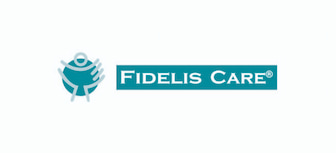Is My Appointment with a Medicare Dermatologist in Manhattan Covered?
Original Medicare covers dermatology visits that are considered medically necessary, but it doesn’t cover cosmetic surgery. Medicare Part B covers diagnostic tests, lab work and other types of outpatient care. Medicare is a federal health insurance program that’s available to people age 65 and over, as well as people younger than 65 who have certain illnesses or are disabled.
If you have Medicare Advantage, you may have coverage that goes beyond regular Medicare, and you may need a referral from your primary care doctor to see a specialist. Manhattan is an urban area with a dense population, which includes hundreds of well-qualified dermatologists who take Medicare, so you won’t have an issue finding the best dermatologists in Manhattan.
If you have a problem with your skin, nails or hair, your primary care doctor may recommend that you book an appointment with a dermatologist in Manhattan who takes Medicare. Many of the best dermatologists in Manhattan take Medicare.
What Conditions Are Treated by a Dermatologist in Manhattan Who Takes Medicare?
Original Medicare covers dermatology visits that are considered medically necessary, but it doesn’t cover cosmetic surgery. Medicare Part B covers diagnostic tests, lab work and other types of outpatient care. Medicare is a federal health insurance program that’s available to people age 65 and over, as well as people younger than 65 who have certain illnesses or are disabled.
If you have Medicare Advantage, you may have coverage that goes beyond regular Medicare, and you may need a referral from your primary care doctor to see a specialist. Manhattan is an urban area with a dense population, which includes hundreds of well-qualified dermatologists who take Medicare, so you won’t have an issue finding the best dermatologists in Manhattan.
If you have a problem with your skin, nails or hair, your primary care doctor may recommend that you book an appointment with a dermatologist in Manhattan who takes Medicare. Many of the best dermatologists in Manhattan take Medicare.
What Conditions Are Treated by a Dermatologist in Manhattan Who Takes Medicare?
Dermatologists provide treatments for many different conditions. These specialized doctors are best known for treating conditions affecting the skin, but they also treat conditions affecting the hair, nails and mucous membranes.
Common conditions diagnosed and treated by a Medicare dermatologist in Manhattan include:
- Rosacea. Adults with facial redness or bumps may have this condition, which may be confused with acne.
- Dermatitis. This common condition is characterized by dry, itchy, irritated skin.
- Psoriasis. Psoriasis can develop at any age. It’s characterized by patches of skin that may be red, dry and scaly.
- Shingles. This is a painful skin rash caused by the same virus that causes chickenpox. It’s usually on one side of the body and is characterized by fluid-filled blisters that crust over.
- Fungal infections. Infections caused by fungi are very common and include problems such as athlete’s foot and ringworm.
- Warts. Warts are common benign growths that vary in appearance and can happen anywhere on your body. If they don’t clear up on their own, they can be uncomfortable or cause self-consciousness.
- Actinic keratosis. This precancerous condition is caused by prolonged sun exposure and is characterized by red scaly patches or bumps.
Doctors who specialize in dermatology have the knowledge and experience needed to diagnose and treat skin cancer in its early stages. When skin cancer is diagnosed early before it spreads, it’s usually treatable.
What Symptoms Can Trigger a Need to See a Manhattan Dermatologist Who Takes Medicare?
Many skin problems clear up on their own, without consulting a doctor. Your primary care doctor may be able to diagnose and treat some of the most common conditions, but for conditions that aren’t clearing up, you may need the expertise of a Manhattan dermatologist who takes Medicare.
Symptoms that may need special attention include:
- A new mole with irregular edges
- A new sore that doesn’t heal
- A mark or mole that’s changed in size or color
- A growth that hurts, itches or bleeds
- Persistent itching or irritation
- Patches of skin that are darker or lighter than the rest of your body
- A band of color around or under a nail
- Cracked, scaly or crusty skin
People often try to ignore skin problems and hope they’ll go away, but that doesn’t always happen. If itching, irritation or discomfort are impacting your quality of life or making you self-conscious, a reputable dermatology specialist can help.
Are There Out-of-Pocket Costs When I Visit a Manhattan Dermatologist Who Takes Medicare?
Medicare usually covers doctor’s office visits and procedures that are considered medically necessary. Out of pocket costs are typically low. To protect yourself from any unpleasant surprises, it’s always a good idea to make sure you have a clear understanding of what’s covered and what’s not.
Some things to keep in mind include:
- When you book an appointment with a Medicare dermatologist, confirm that they accept Medicare.
- If you need a dermatology procedure or surgery, ask for a quote of your out-of-pocket costs before scheduling the procedure.
- Check your policy or double check with your insurance representative to see if there’s a deductible that must be met before coverage kicks in.
With certain skin conditions, prescription drug coverage may be a concern. Medicare Part A and B don’t include prescription drug coverage. Medicare recipients can obtain prescription drug coverage through Medicare Part D or through a Medicare Advantage program. Different plans have different price lists for medication, and there may be a co-payment for certain prescription drugs.
What Treatments Are Done by a Medicare Dermatologist in Manhattan?
Dermatologists are trained in the best treatment for many different skin-related conditions.
Once your NYC dermatologist has diagnosed your skin condition, treatment options may include:
- Prescribed topical or oral medication
- Injected medication
- Skin grafts or flaps to repair missing or damaged skin
- Laser surgery to treat problems like warts, moles or birthmarks
- Skin biopsies to diagnose a skin problem or to rule out specific conditions
Benign or pre-cancerous skin conditions may be treated with cryotherapy, a procedure that freezes the area of damaged skin. Some growths or tumors may be removed using a scalpel in a procedure called excision surgery. Mohs surgery is a type of surgery that’s often performed in the dermatologist’s office to remove skin cancer.
A dermatology expert is the best medical professional to visit if you have a skin problem that’s bothersome and not going away. If you have a skin condition that hasn’t responded to conservative treatment by your primary care doctor, book an appointment today with a dermatologist in Manhattan who takes Medicare.


 My BestDoc
My BestDoc
 Future Appointments
Future Appointments
 Settings
Settings
 Sign out
Sign out










